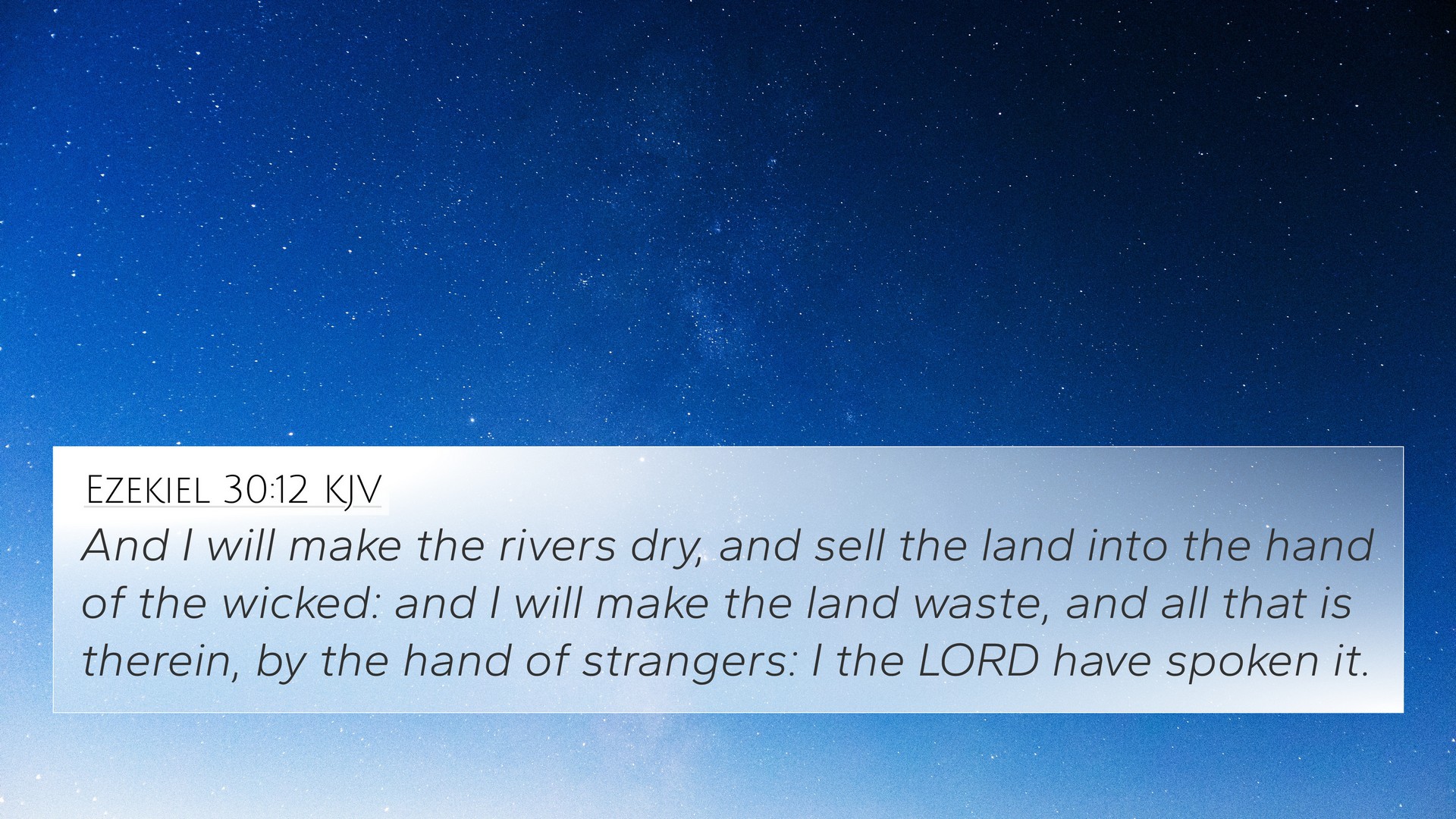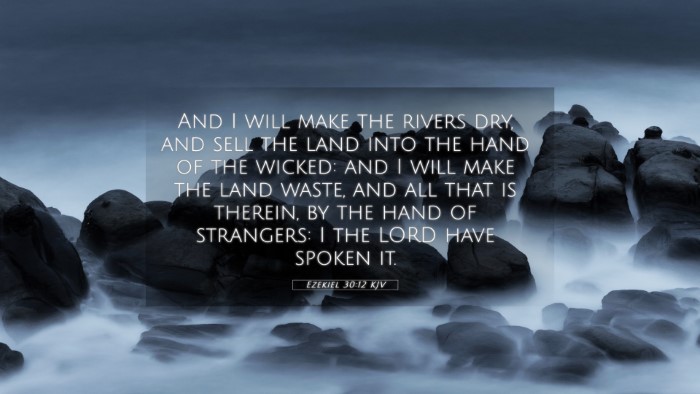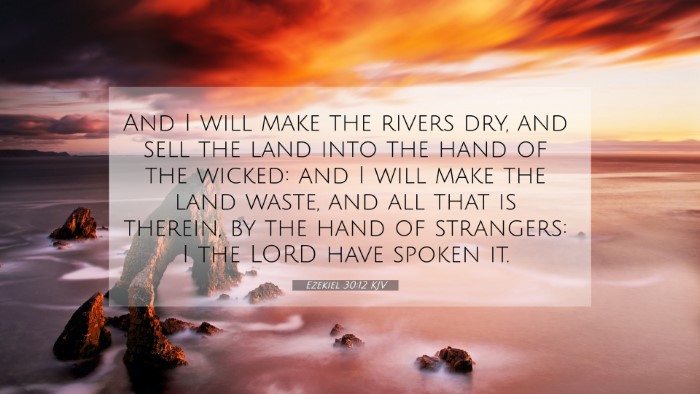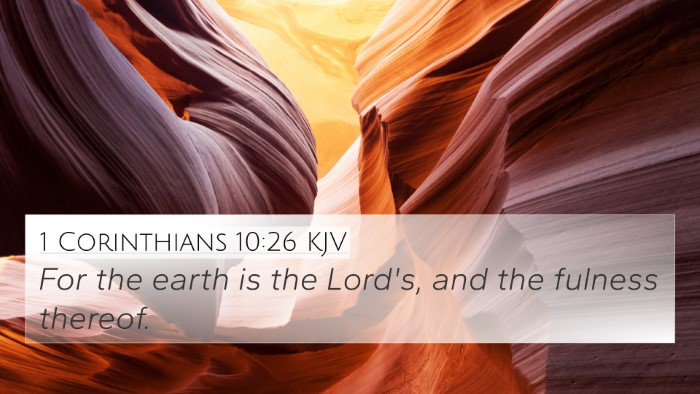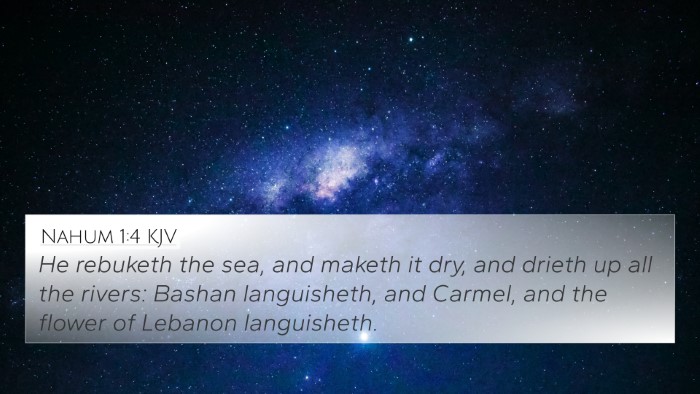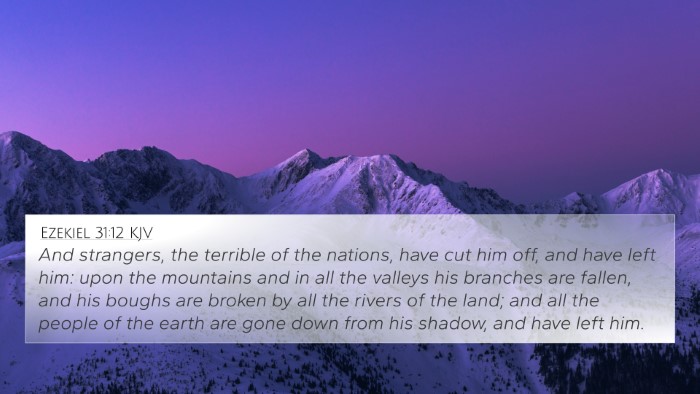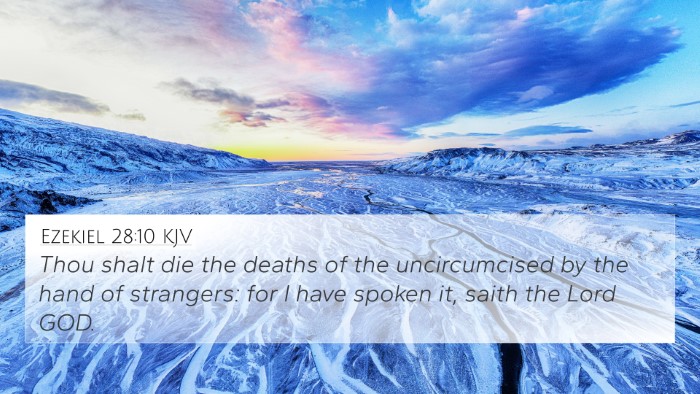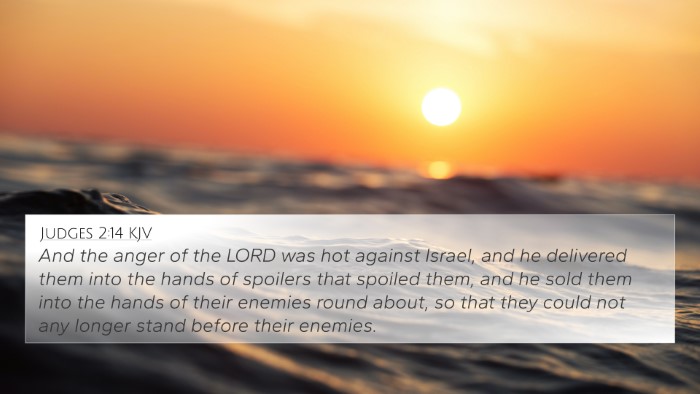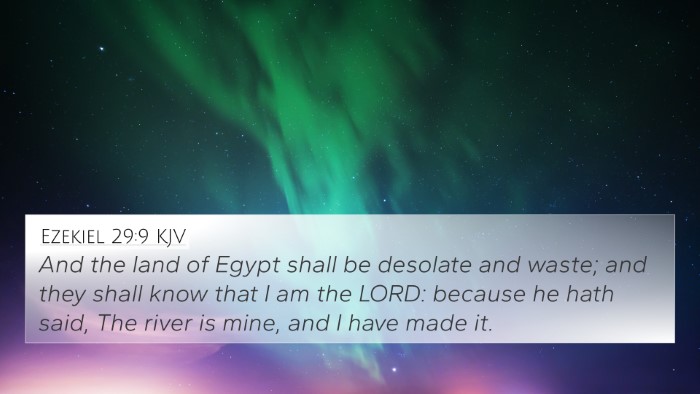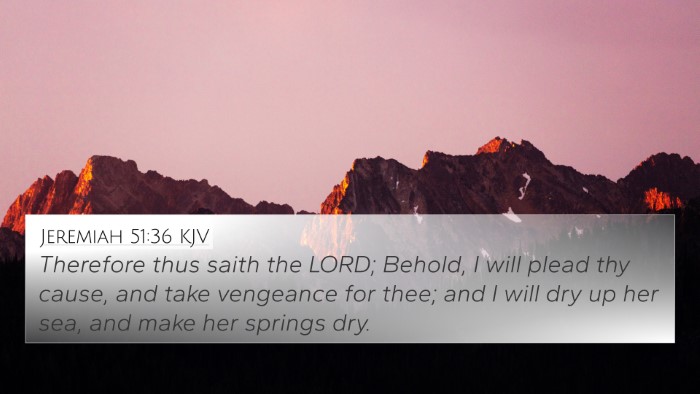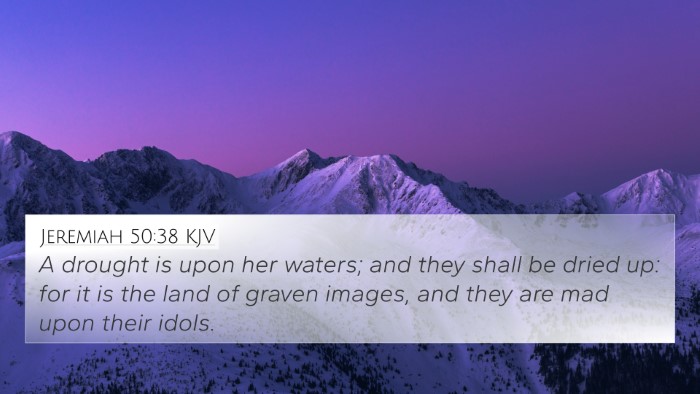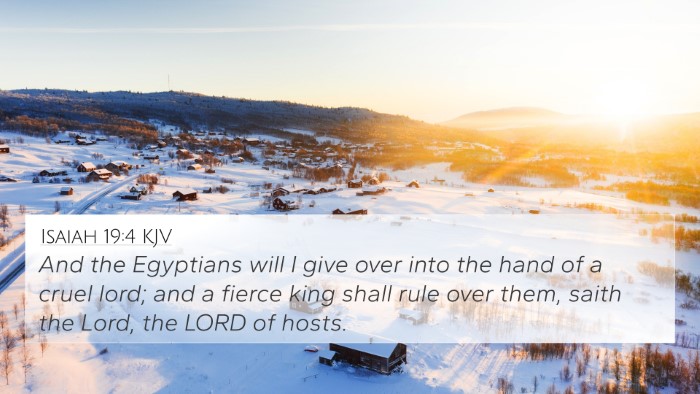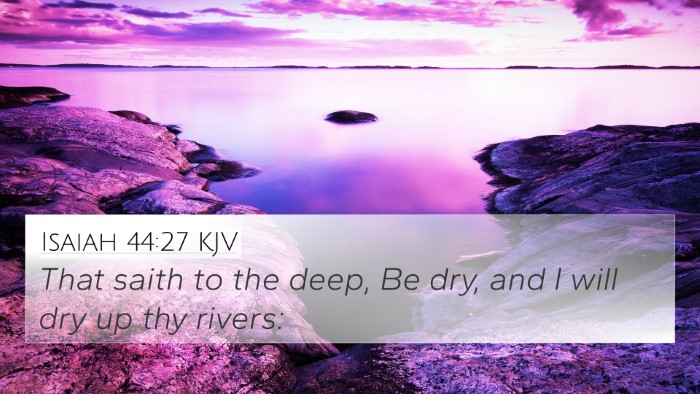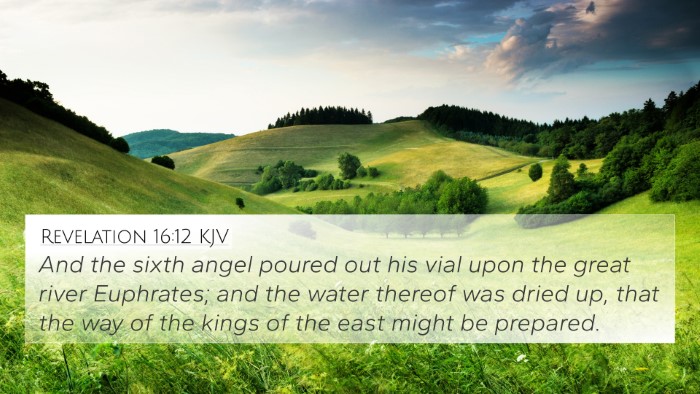Ezekiel 30:12 - Meaning and Insights
Ezekiel 30:12 states: "And I will make the rivers dry, and sell the land into the hand of the wicked: and I will make the land waste, and all that is therein, by the hand of strangers: I the LORD have spoken it." This verse illustrates God's judgment upon Egypt and emphasizes His sovereignty over nations.
Summary of Meaning
In this verse, God is declaring His intention to bring desolation upon Egypt due to its pride and idolatries. The drying up of the rivers symbolizes the loss of resources and strength, while selling the land into the hands of the wicked represents utter defeat and subjugation. The emphasis on "strangers" alludes to foreign invaders who will execute God's judgment.
Commentary Insights
Matthew Henry Commentary
Matthew Henry highlights the significance of God's control over nature and nations. He emphasizes that the drying up of rivers not only symbolizes a physical desolation but a spiritual one, as Egypt's reliance on false gods leads to its downfall. The verse serves as a reminder that amidst God's judgment, there is also hope for repentance.
Albert Barnes Commentary
Albert Barnes discusses the historical context in which this prophecy was delivered. He notes that the "rivers" likely refer to the Nile and its canals, essential to Egypt's economy and life. Barnes stresses that God's judgments are often measured and purposeful, aimed at bringing nations back to a awareness of His sovereignty.
Adam Clarke Commentary
Adam Clarke further elaborates on the idea of land being sold to the wicked as indicative of God's retribution against the egregious sins of the Egyptians. Clarke sees this as part of a larger pattern of divine justice, where the unrepentant face consequences for their actions, indicating the severity of turning away from God.
Cross References
- Isaiah 19:5-6: Speaks of the drying up of the Nile, paralleling Ezekiel's prophecy.
- Jeremiah 44:30: Provides the context of judgment against Egypt, reiterating the theme.
- Revelation 16:12: Mirrors God's power to dry up rivers as a parallel in eschatological judgment.
- Ezekiel 29:3-5: Contains a similar warning against Pharaoh and Egypt, emphasizing God's claims over nations.
- Amos 8:8: Discusses the desolation that follows divine judgment, linking to themes in Ezekiel.
- Psalm 105:23: Reflects on Israel's sojourn in Egypt, providing an additional layer to understanding Egypt's fate.
- Acts 7:36: Corresponds to the theme of Israel's deliverance from Egypt, presenting God's overarching plan.
Bible Verse Connections
The implications of Ezekiel 30:12 resonate throughout scripture, illustrating the interconnectedness of Biblical texts. This verse serves as a crucial link in understanding God's judgment, the consequences of idolatry, and the ultimate sovereignty of God over nations.
Thematic Analysis
This verse invites readers to study the themes of judgment, desolation, and divine authority. By cross-referencing other relevant passages, such as those in Isaiah and Jeremiah, one can conduct a comprehensive Bible cross-reference study that emphasizes these thematic connections. These tools for Bible cross-referencing aid in revealing the rich tapestry of scripture.
Cross-Referencing Biblical Texts
A thorough approach to understanding Ezekiel 30:12 encourages the use of a Bible concordance or cross-reference Bible study guide. This method not only aids in finding related scripture but also enhances the reader's grasp of how various passages interrelate.
Conclusion
Ezekiel 30:12 serves as a profound testament to God's omnipotence and the grave consequences of disobedience among nations. Through the lens of public domain commentaries and scriptural cross-referencing, one gains a deeper understanding of the message contained within this verse, which remains relevant for both personal reflection and communal studies.
